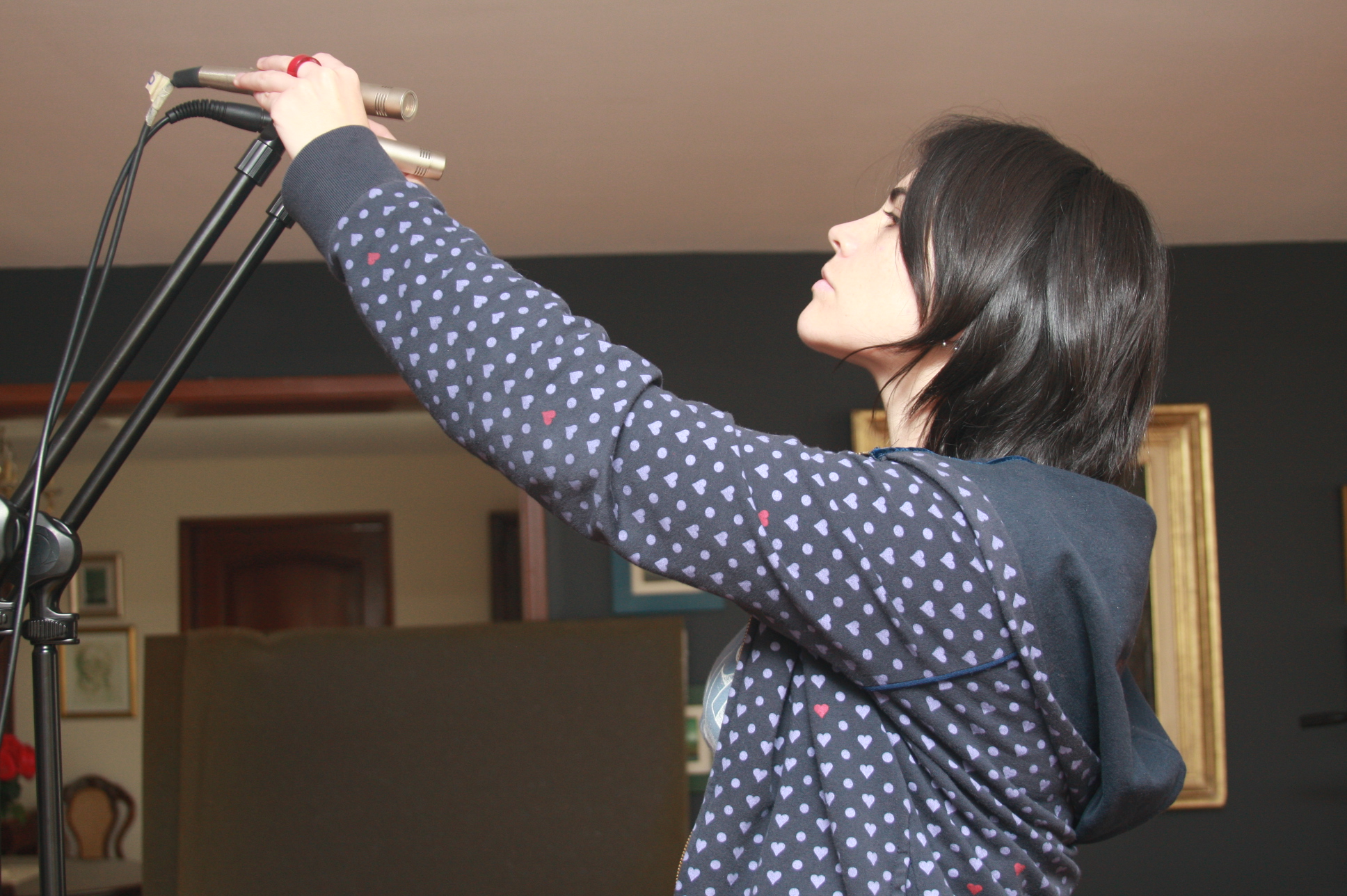
Breaking the Barriers of Sound from Colombia
 Maria Elisa Ayerbe Barona grew up in Colombia and is a recording and mixing engineer, sound designer, and audio educator. (more…)
Maria Elisa Ayerbe Barona grew up in Colombia and is a recording and mixing engineer, sound designer, and audio educator. (more…)

 Maria Elisa Ayerbe Barona grew up in Colombia and is a recording and mixing engineer, sound designer, and audio educator. (more…)
Maria Elisa Ayerbe Barona grew up in Colombia and is a recording and mixing engineer, sound designer, and audio educator. (more…)
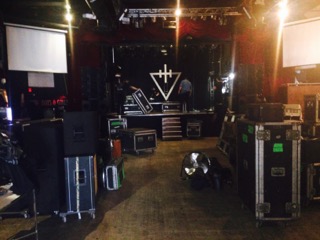
It’s been close to five months since I’ve moved to Toronto to work as a monitor tech. From at least partially conquering my fear of digital boards to working on my people skills, here are some of the more important lessons I’ve learned. (more…)

What goes into being a great tech that engineers request or want to work with? The first in a series of articles on system techs and their advice on what it takes to be a great tech.
Suzy Mucciarone started out as a stage tech and now is well respected system and Engineer and FOH Tech. (more…)
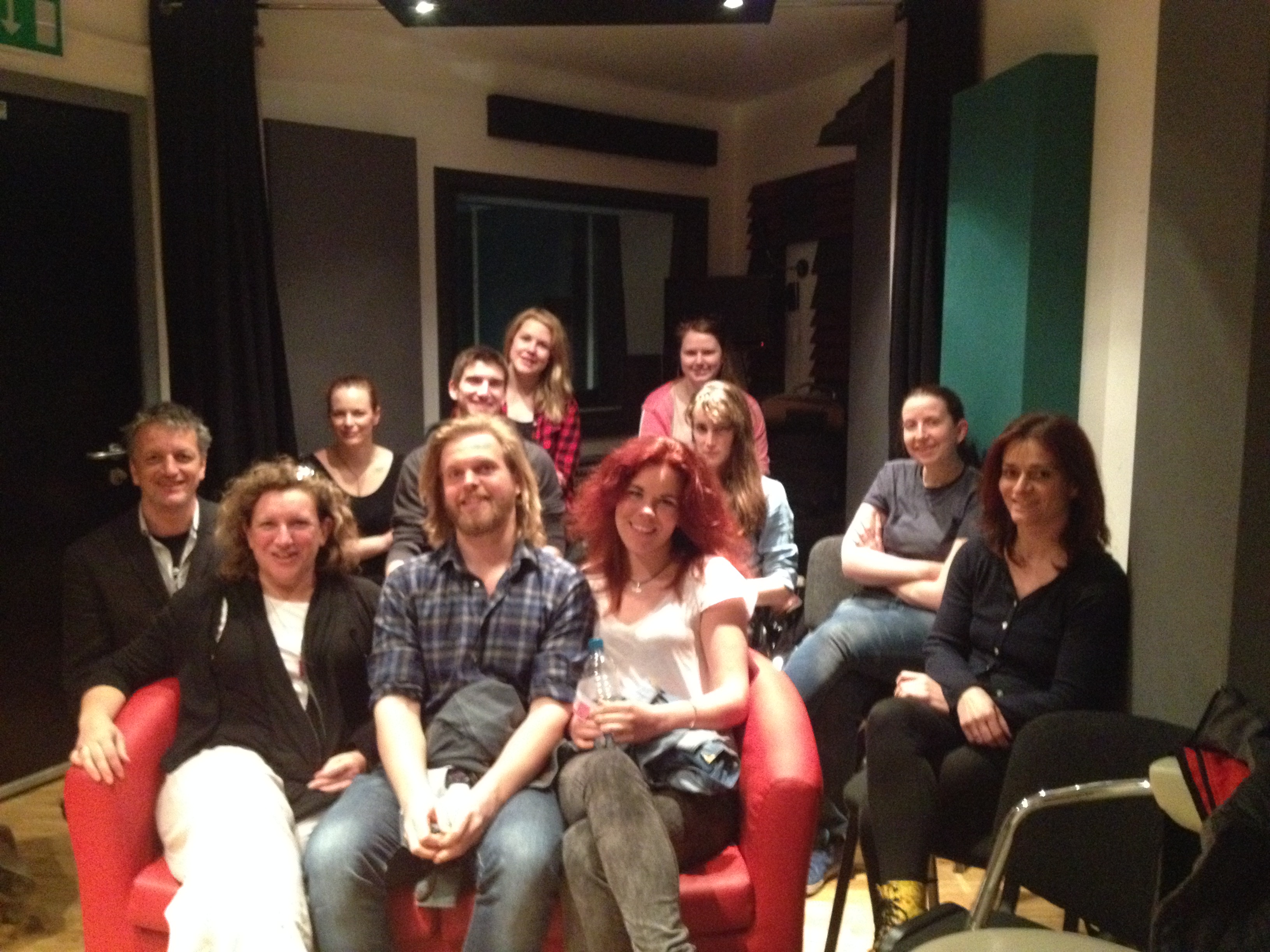
The European SoundGirls held an exciting workshop at SSR and invited longtime Monitor Engineer for Tori Amos, Marcel van Limbeek to speak. Women working in professional audio are often treated unfairly by our peers and face numerous obstacles that we often associate with sexual discrimination. Yet, men face some of the same obstacles and barriers. Marcel shared the pressures and obstacles our male co-workers experience and offered advice on how best to handle these situations. It was an engaging discussion and pushed forward the conversation on gender inequality and sexism in the industry.
We want to extend our thanks to SSR for hosting this event and Marcel van Limbeek, for sharing his experiences with our members. We hope to continue this conversation with Marcel, so look for an upcoming article and interview.
We would also like to thank Malle Kaas for organizing the event
Karrie and Michelle
Thoughts on the Workshop
Malle Kaas recently completed Brit Row’s Production Training, she organized this event. She resides in Denmark.
On my way to the event, I was reflecting on the latest blog from Karrie Keyes Unconscious Bias, I felt it related to tonight’s workshop. How we approach others, and how we react to others behavior. I was thinking how important it is to think twice in our approach and reaction to others. Very often, our behavior in the present comes from our history that has been shaped by our experiences. It often determines how we interact with other people.
Tonight was about hearing a male co-worker talk about his experiences. What to do when you lack confidence? Or you have just made a huge f*** up on a major TV-production, and you can’t just run away, but have to stay and face the 200 other people on the production. How devastating it is at an age of 50 to keep knocking doors down for work. What it is like to never really to feel like a part of the industry, even though you have worked for a critically acclaimed artist for over 20 years. I think that the majority of those who attended the event, felt it was a relief to hear that an industry veteran faces the same issues that many of us do.
Marcel offered advice on how to cope with the difficult feelings we may have about our jobs. You must be “aggressive” (courage may be a better word). Aggressive enough to be able to apologize if you have made a mistake. Aggressive enough to be able to come and ask for work over and over again. Aggressive enough to be determined to do a good job, (dress properly, prepare and know the gear, etc.). Aggressive enough to be honest. It is important to remember, it is a friendly industry but also very competitive. And whatever stories you make, they stick to you – especially the bad stories. But hey, everybody messes up – and when you do, be sure to have a friend to talk to about it.
Petra is a live sound engineer working in Holland.
Take away the industry is one of praise, and everything is overly important. It’s an addictive, bright place to be, but this also comes with a flipside. When there is no praise, or you make mistakes, which happens to every human being, you can get very big throwbacks as well, and it might seem you’re worthless.
When you’re sensitive to this, (which I am) and I found out from the talk that many people are, the lows can really take you down. So make sure you don’t take your worth just from your days work, but also make a steady foundation from past days. It is also important to have people and things outside the circus, (who don’t have ulterior motives, like wanting your job for themselves or their friends) to talk to.
Second, I discovered that probably the only reason I have stayed in this business is to prove to everyone who told me I couldn’t do it that they were wrong. Apparently, I’m very stubborn and the more you tell me I can’t do something, the more I want to do it and do it well.
One last thing that struck me is that the SoundGirls Forum seems to fill a void. Not only for women working in sound, but also for men, who also have a need to discuss their place in the industry in a less business like manner. This is actually quite wonderful.
Laura is currently interning at a local studio in London
Personally, I found Monday night fantastic. This third SoundGirls meet up felt like we’d taken these nights up a notch. The talk by Marcel I found was very interesting; he is a naturally entertaining person. He managed to hold my attention for all of it of his talk, which is a rare thing. As well as his successes in the sound industry, he shared his failures with a refreshing honesty, which is brilliant because he obviously wants others to learn from his experiences. I loved (and related to) his all or nothing attitude towards sound and it was reassuring to hear that hard work and ambition do pay off. He confirmed my belief that the best thing you can do is to be awesome at your job. Learn everything you can, treat people well, work as hard as you can, and then no one, sexist or otherwise, can deny you the right to be where you are. Thank you again to Marcel for the talk (and the drink), and I look forward to seeing everyone again next month!
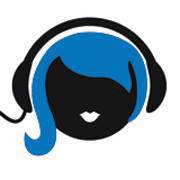
 We are putting together The Girls Guide to Doing Sound, for our summer camp program. We are taking submissions to be included in the guide of tips for mixing live sound. We are looking for the unusual tips, that you only learn as you experience them. Everyone that contributes their tips will be entered into a contest to win some cool prizes. We are looking for fun tips like:
We are putting together The Girls Guide to Doing Sound, for our summer camp program. We are taking submissions to be included in the guide of tips for mixing live sound. We are looking for the unusual tips, that you only learn as you experience them. Everyone that contributes their tips will be entered into a contest to win some cool prizes. We are looking for fun tips like:
When mixing Mariachi Bands, watch out – They probably will not sound check in their costumes or with their sombreros. Note: Sombreros will aggravate feedback problems during the show. This applies to hats with brims, glasses, teeth, etc.
Equipment typically does not like liquid poured into them and can cease to work properly.
Vocal Sound – deteriorates during the show – Swap out the vocal mic. It may be filled with sweat and spit.
For each tip you contribute you will be entered into the contest. Tips can include survival techniques as well. Contest deadline is May 31, 2015. Send your tips to soundgirls.org@gmail.com
Some of the cool prizes include:
Hardcover copy of WELCOME TO GROOVE HOUSE, by Jill Meniketti
SoundGirls.Org T-Shirt and Stickers
Sennheiser Baseball Hat
Rat Sound Systems T-Shirt
Pearl Jam T-Shirt
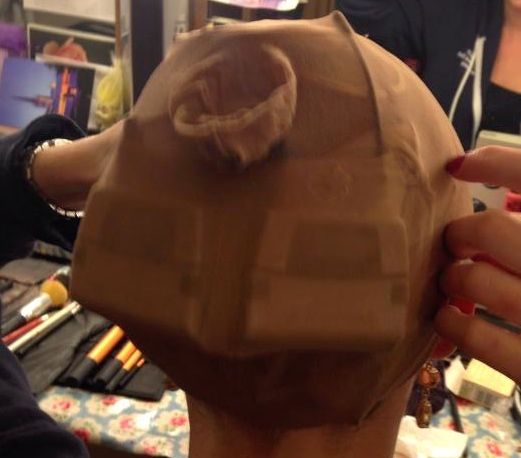
It happens to everyone at some point. That crucial bit of kit fails at the wrong moment. The radio mic on the lead has sweat in the mic head or the connector. Someone in the Brass section has knocked water into the stage box. The touch screen is out of alignment and instead of hitting save you hit load new session. It’s going to happen the machines are out to get us, and you better have a backup plan. (more…)
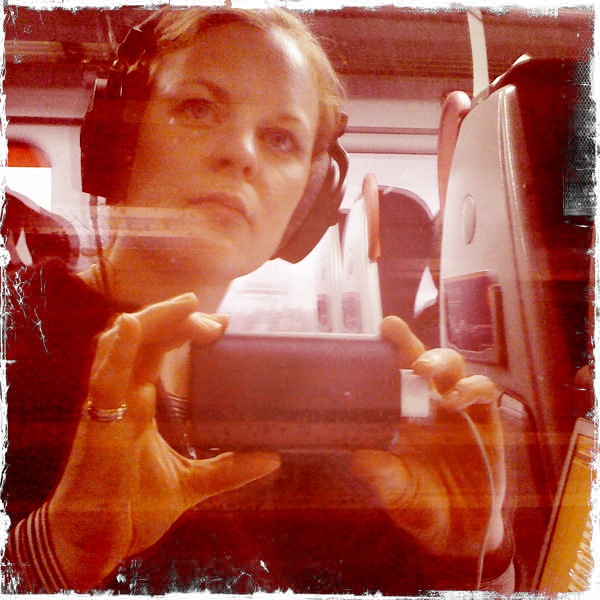
It’s not a mic, a recorder, and it’s definitely not a plugin. The best sound design tools you have are attached to you, your ears. (more…)

SoundGirls.Org spoke to Mike Lowe, Director of Britannia Row’s training program in London UK. Below is our interview with Mike regarding the program.
Britannia Row Productions is one of the top live sound companies in the world. This has been achieved by having some of the very best engineers and technicians. Training has always been central to our ethos. As an employer, Britannia Row Productions have always known that college and university courses still do not fully cater for our particular niche. And we know from our colleagues and counterparts in Live Sound throughout the industry and across the globe, that we are not alone in this view. (more…)

Jackie Green is Vice President of R&D/Engineering at Audio Technica. She’s been involved in the development of several of ATs innovative products and technologies. Jackie also holds patents on key digital and wireless work.
I understand that you played a whole variety of instruments as a child and you also had a love for science. Your interest in electronics and science started at a young age. They don’t teach much about electronics in elementary or high school, so how did you go about learning about circuits and figuring out how to fix equipment?
“I was always building things, even as a young child. We lived in the country and I didn’t have other kids to play with. I spent my time building dams in the creek and boats to try and float and sail without tipping. My father noticed I liked building things and when I was in the 2nd grade, he gave me a small crystal radio kit to build. I was fascinated by how something so simple could make music! That simple project made me curious, so I began to take apart other electronic devices in our home. I discovered that everything was made of the same simple parts. Of course, often upon disassembling things, I broke them. So necessity dictated that I learn how to fix things too. Later on, I built an electric bass and played it through my parent’s stereo. Obviously, that was always breaking – so I then really needed to learn about speakers, vibration, power levels, distortion, as well as circuits. I didn’t actually realize what I was learning about at the time – just that there were various complex interactions that either allowed me to play my bass or didn’t. “
What pushed you to get into product research and development rather than something like performing, recording engineering, or mixing?
“I didn’t ever intend to stop performing music, but I recognized that it would not be a great source of income or stability. So, my plans turned to other careers with a plan of finding an orchestra to play in once I “retired” from real work. I did initially think I’d go into recording or mixing (well, after I decided not to go to vet school – which was my first career choice). I loved finding creative ways to capture the sound I was hearing. I also loved it when all my tracks blended together and then popped into that special place where I know it “feels” just right. But, in the studio, the equipment was always breaking. My lifelong experience led me to dive in and put things right. Many times when I was fixing or re-arranging something I would think that there really was a better way to design it. It wasn’t long until I took up more physics, electronics and digital classes in order to find ways to make things better. And now, here I am 30 years later and I’m still doing that!”
You stared at AT in computer programming, how did you make the transition to R & D, and what spurred you to move to the field?
“When I started at AT, they were a consumer company that mainly distributed phonograph cartridges. They also had some consumer loudspeakers and headphones products. I was attracted by the music reproduction technology and needed a job while I was getting my masters in management. The job they had available was writing programs to analyze market research data, so that’s what I did. Once my masters were finished, I began to work here full time. That’s when we started to develop the pro audio side of the products. R&D was a natural fit because we were starting from ground zero on the professional side of things. I was inspired by the opportunity to research and create solutions on a clean canvas with no preconceived barriers.”
What was the first product you worked on at AT?
“It’s hard to remember what really came first. I worked on consumer loudspeakers and headphones, but on the pro side, I think the first would have been the AT4049, AT4051, AT4053 modular transformerless condenser microphones.”
When you are developing a product, is there a moment when you know you’ve nailed it or do you just get to a point where you’ve decided it’s finished? In other words how do you know when to say when?
“I’ve failed if I haven’t gotten to the “nailed it” stage. Of course, there have been times in my career when for whatever reasons we’ve just had to move on, but gosh that’s hard. I do what I do in order to create a product that when I use it gives me a certain “feeling” that is hard to describe. It’s kind of a synergistic harmony when you know that everything is working together and no part of the sound or function is working against another part. It’s hard to describe – but when you know it’s right, you know you’ve nailed it and it’s done. I find that working past that stage, or second guessing yourself will usually result in a lesser product.”
What was one of the most interesting or exciting projects you’ve worked on, and do you have a favorite?
“One of the most interesting was developing a time-domain measurement that allowed us to look at how a microphone keeps responding after the initial transient. The activity that happens over time is essential to the actual sound quality of the microphone, and creating something that lets me see this was awesome! As for “favorite” – it really tends to be whatever I’m working on at the moment because it’s the process and discovery that are the most fun as opposed to the specific product.”
Do you find that most products come from a desire to improve an existing product or out of a need for something completely different?
“Most of my ideas or goals for a product come from a desire to create something new and better as a tool for the acquisition or playback of great sound, so there is always a “need.” Whether I need to improve something existing or create something new depends on the problem that I’m trying to solve. I do have one weakness, though. If someone says “that can’t be done,” then I am strongly inclined to try and do it.”
What is the best part of your job and what is the most difficult?
“The best part is the ability to pursue my creative curiosity. The most difficult is convincing others to follow when I want to do something that no one else has done before.”
There are so few women in professional audio, I can only imagine there are even fewer who do what you do. Have you met with many obstacles or much sexism? If so, how have you handled it?
“Of course I have met with obstacles and sexism, but I generally don’t even realize it until afterward. I was raised to not accept any excuse or obstacle because of who I am or where I came from. That is so ingrained, I can’t even imagine accepting a limit or filter. I must credit my family for this. On top of that internal compass, I’m an engineer. I like to make decisions based upon good and complete data. When others judge me without good and complete data (such as based only upon gender) I find it more frustrating to be dismissed because they are using bad data than because they are being discriminatory. I can’t change who I am or who others are – but I can try to influence them to use good/complete data.“
What advice do you have for young women and girls who are interested in science but intimidated by it?
“If you are interested in science, then ask yourself why you are interested. Ask yourself if there is anything that would be really fun to try or know more about. Then ask yourself – so why wouldn’t I want to try it? The “why nots” will tell you what you need to do to stop feeling intimidated – or even embarrassed – to have this interest. Since girls are actually very creative and intuitive, science is a fantastic field for them. I don’t think the intimidation comes from the actual area of science, it comes from concern about how they will fit in. Luckily today, there are lots of clubs, social networks, and activities for girls and young women to experience connections with others who also feel this curiosity. Stand up for yourself and get involved. Find a teacher or a woman professional and talk to them about what you can do. I’m pretty sure you’ll find a world of support once you look!”
What are the most useful skills for someone interested in this career?
“Creativity, knowledge of acoustics and physics, and very importantly, a solid adherence to the scientific method. You can really fool yourself and go down the wrong path if you are not careful about the process. This is one of the biggest mistakes I see engineers making (both male and female). Make a plan, identify your controls, make only one change at a time, check your work many times and carefully record and consider all your results before jumping to conclusions. Stay your course. Also, in this field knowledge of, or love of music also helps.”
Can you tell us about a current project you are working on?
“Currently I’m very busy working on alternate transmission and reception methods for wireless microphones. There are some very difficult challenges that exist with today’s very hostile and shrinking RF spectrum. I’m looking for ways to provide the same high-quality professional audio sound and reliability that exists when using a wired microphone in a wireless device. We are truly finding ways to do “more with less” – and I refuse to sacrifice the sound to do it.”
Is there anything else you would like to add?
“Let’s talk about math. I think math scares off many potentially great engineers (both genders). I personally don’t feel we are teaching math correctly in school these days. There is too much focus on “finding the right answers over and over” and not enough focus on the real reasons why we use math. Don’t give up on engineering if you aren’t doing well in math in school. We have computers to do those calculations. You need to know what is possible to do, and you need to know what type of math “tool” is available to help you get to your goal, and that’s it. Maybe this will be the one thing you have to get extra help with during school – but please don’t let this stop you. Einstein was terrible at math, right? Or was he just having trouble with how math was done in school? If you are an “engineer” you will find a way to get around this obstacle.”
*Microphone images courtesy of Audio Technica